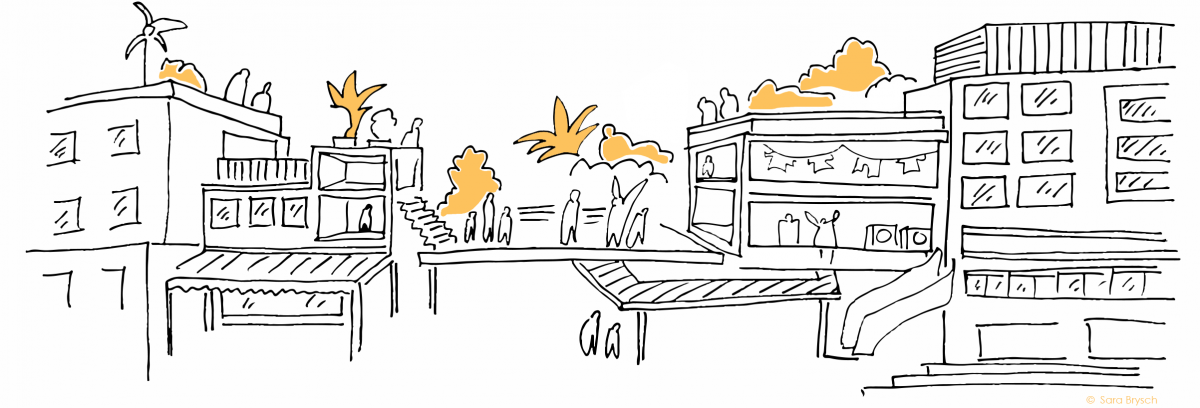[Scroll down to read Blogposts]
Living together, but apart: what can we learn from a pandemic that took over the world?
Since the outbreak of the COVID19 pandemic last March, people across the world have seen their lives turned upside down, not only by widespread disease, fear and death, but also by radical changes in the way we live. Words like “lockdown” and “quarantine” have entered our daily conversations; the 1,5 metre distancing has become a new canon that measures our movement; invisible corona-shaped particles dictate our every action. Working from home, previously shunned by employers, has suddenly become the norm. While those of us who are fortunate to live in adequate housing have welcome the opportunity to avoid lengthy commuting and spend more time with our partners and children, homeless or inadequately housed people have seen their situation worsened by the pandemic. The already stark inequalities and structural deficiencies in the housing market have become more acute. At the scale of the city, advocates of compact cities and density have started to rethink the viability of these principles in a post-pandemic world. Overall, scepticism towards anything that reeks of social proximity and physical contact is becoming the new discourse. So, where does that leave living forms that rely on sharing spaces and activities, such as cohousing, coliving, and other forms of collective living arrangements? We set out to answer this question by asking the residents of these housing projects about their own experience. From informal exchanges, we have heard about common challenges they face, but also about new opportunities to show solidarity and mutual help, and come up with creative solutions.
In this blog series, we will present short accounts from residents of collaborative housing projects in different parts of the world. They will reflect on challenges, opportunities, solutions but also about what we can learn to improve the planning, design and management of collaborative housing in the future.
Enjoy reading!
Darinka Czischke
Co-Lab founder
